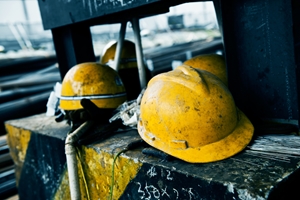When skills shortages bite, many companies struggle to find the right people with the talents they need to grow as a business.
While some will then pay high wages and offer significant incentives to attract and retain skilled employees in important sectors, other businesses are turning to entry-level employment to fill the gap.
Apprenticeships and traineeships, for instance, are tried and tested ways to improve a company’s workforce in the long term, while limiting overexpenditure on wages and other incentives.
Mining in Queensland can learn in particular from a recent entry-level initiative, which employed and trained the majority of its workforce from people with no industry experience whatsoever.
Glencore’s Ulan West mine in New South Wales was announced in 2010, before finishing construction and opening this year. Queenslanders make up part of its 362- strong workforce, and more than 90 per cent of them are “cleanskin” employees, who have never been employed in the mining sector before.
This created a range of challenges, with many thinking it couldn’t be done, according to Ulan West’s Operations Manager, David Ribaux, who spoke to Australian Mining this month.
However, as the end of the year approaches, the $1 billion investment is in full flow, with the previously inexperienced employees now responsible for producing 6.7 million tonnes of coal per annum over the next 20 years.
Recruiting in Queensland
To find the right employees, Ulan Coal Mines Limited (UCML) took to the road, recruiting people for mining jobs in Queensland, as well as in the Premier state.
According to Mr Ribaux in his interview with Australian Mining, more than 6,000 people applied for the career change, looking to move from industries as broad as IT, hospitality, farming and retail.
Out of this, around 600 applicants were interviewed and asked questions to gauge their suitability for a mining role.
Questions such as “how does mining affect communities and what can you do this minimise this?” were similar to the queries posed to skilled miners, with the intention being to attract people who are natural to the role.
Training delivered on site
To train the new recruits and ensure their safety, Ulan West created a unique program of education.
Using its Baal Bone coal mine near Lithgow, the company created a simulated mine facility where employees could hone their skills, master their tools and learn practically.
“They started out in a theory classroom, then went out to this surface area where they could not harm anything and see what was going on in the confines, and the next step was to go underground and do it,” Mr Ribaux explained.
“It showed it worked because we went into our first full year of production having been the safest underground mine in our group, and exceeded our targets.”
The trust placed in entry-level employees sets a standard for others to follow. With up to 28,000 jobs recently announced for the Galilee Basin alone, more Queensland employers may come to understand the benefits of hiring an apprentice in mining and training them to be the skilled workers of tomorrow.
By Leanne de Toerkenczy, Public Relations Coordinator.

